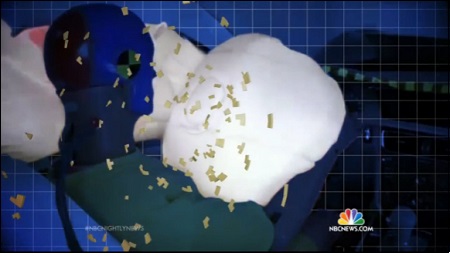
|
|

|
|
| April 25, 2024 |
|
Regulators tell some Honda and Acura owners not to drive 
Federal regulators on Thursday issued an urgent warning to owners of more than 300,000 Hondas and Acuras, saying they should not drive their vehicles until the Takata air bags are replaced.
The National Highway Traffic Safety Administration said a new round of tests on the Takata air bags installed in some model-year 2001-2003 Hondas and Acuras posed a much higher threat to drivers and passengers than first thought. The agency said the air bags needed immediate replacement. In collisions, the faulty Takata air bags can rupture and spray drivers and passengers with metal shrapnel. “With as high as a 50 percent chance of a dangerous air-bag inflater rupture in a crash, these vehicles are unsafe and need to be repaired immediately,” Transportation Secretary Anthony Foxx said in a statement. “Folks should not drive these vehicles unless they are going straight to a dealer to have them repaired immediately, free of charge.” Takata air bags are installed by almost two dozen automakers and their malfunction has been blamed for 10 deaths and hundreds of injuries. The NHTSA said nearly 70 million Takata air bags are or will be under recall in the United States by 2019, making it the largest recall in the nation’s history. The Japanese firm is the world’s largest manufacturer of air bags, and replacements are in such short supply that many U.S. drivers who have received recall notices are being told it will take weeks or months before their vehicles can be repaired. Unlike other air-bag makers, Takata uses ammonium nitrate to trigger a small explosion that inflates the air bag when the vehicle strikes something. But in some vehicles, particularly those that were several years old and kept in regions with high humidity, the ammonium nitrate burns too fast, causing the chemical’s container to explode and spray shrapnel. Takata says it will phase out the use of ammonium nitrate in its air-bag systems by 2018. That means that some drivers may have to have their air bags replaced twice, once with a newer ammonium nitrate bag and a second time when air bags that don’t use the problematic chemical become available. Eight of the 10 confirmed air-bag deaths, including the most recent near Houston in March, were in 2001-2003 Hondas and Acuras, the NHTSA said. Huma Hanif, 17, died when her air-bag inflater exploded on March 31, after her car collided with another vehicle at an intersection in suburban Houston. The auto dealer and Honda said they had sent six air-bag recall notices to Hanif’s family, but family members said they had not received the notices. The NHTSA data released Wednesday said that in the following model years, the air-bag inflaters “contain a manufacturing defect which greatly increases the potential for dangerous rupture.” ●2001-2002 Honda Civic ●2001-2002 Honda Accord ●2002-2003 Acura TL ●2002 Honda CR-V ●2002 Honda Odyssey ●2003 Acura CL (Source: The Washington Post) Story Date: July 1, 2016
|